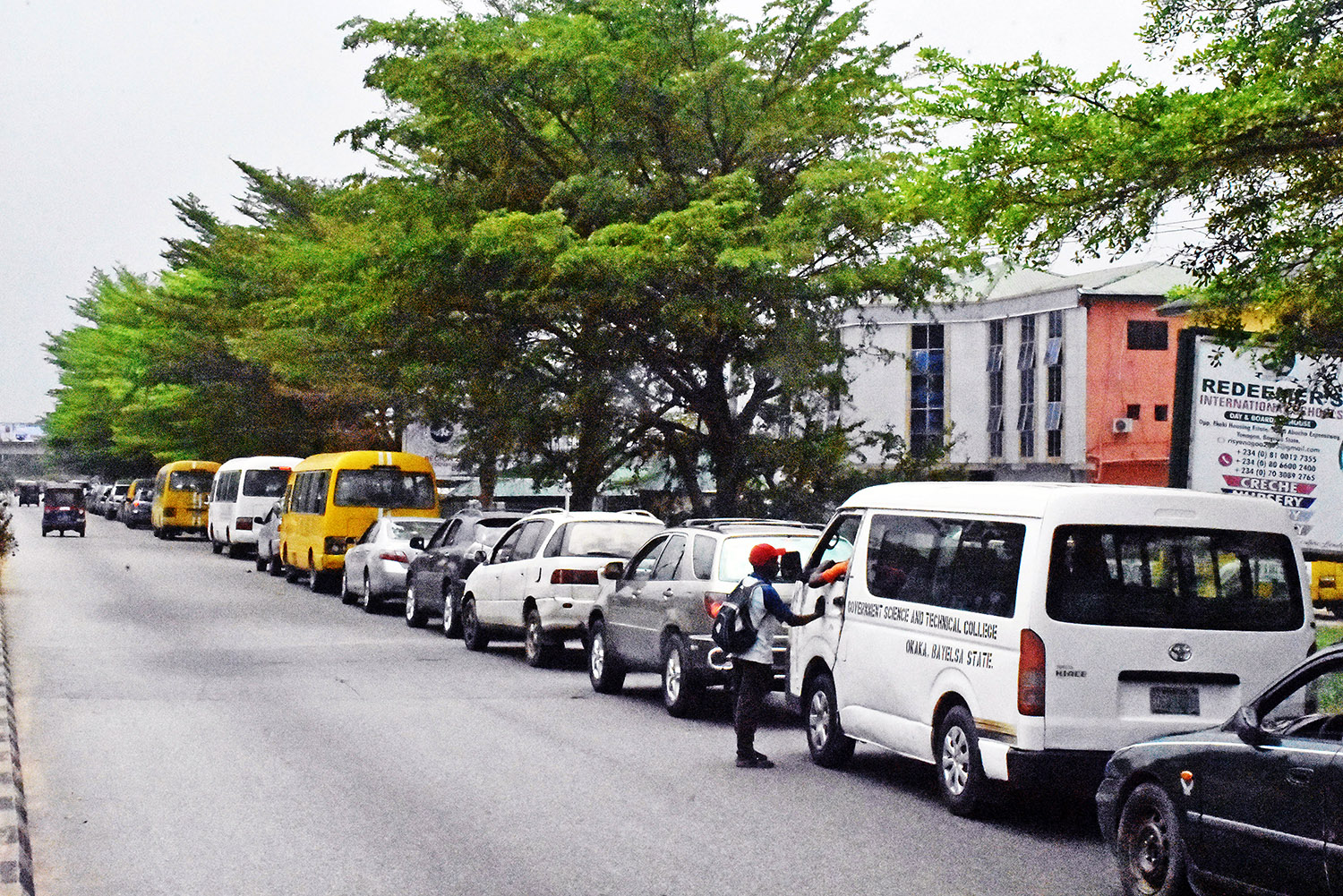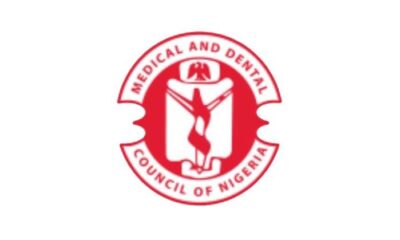Business
Grey Areas In 2013 Rivers Budget
It is now three weeks and two days since the Rivers State 2013 Appropriation Bill was presented to the state House of Assembly by Governor Chibuike Rotimi Amaechi.
Originally scheduled to fall on almost the same December date as the 2012 budget reading, this year’s presentation seemed to have come a little late, particularly considering that Lagos, Ogun, Ekiti and a few other states were already signing their budgets into law.
Again, not that it really matters in economics or law, the 2013 proposed budget doesn’t seem to have come with a working title. As has always been the tradition with federal and state budget proposals, each of these yearly income and expenditure plans is usually accompanied by an appropriate tag to suggest a focus for its implementation.
For instance, this year’s Federal Government Appropriation Bill has been tagged ‘Budget of Consolidation With Inclusive Growth.’ In 2010, Rivers State budget was entitled ‘Budget of Consolidation’; that of 2011 found a fitting sobriquet in ‘Budget of Transformation’; while last year’s was dubbed ‘Budget of Resource Utilisation’.
The 2013 Economic Outlook, as projected in the document, really calls for caution. Indeed, the partial removal of petrol subsidy, insecurity in the North, the nationwide flood disaster, hike in electricity tariff and depreciation of the Naira, have exerted an inflationary pressure on the Nigerian economy. And, as rightly predicted in the budget, this collective toll may continue to push up prices of goods and services in the new year.
Based on the above assumption, the budget has tried to cushion its estimates from the vagaries of the international crude oil market. Predicated on a benchmark price of $65 per barrel as against the Federal Government’s $75, the bill allows for a $10 safety net (even though the document stated this as $19). Let’s also consider the fact that the National Assembly has since rejected the Executive’s proposed oil price and is most likely to adopt $79.
In its Review Of 2012 Budget, the government submitted that part of the funding for last year’s expenditures came from ‘Proposed Bond/Loans of N100 billion.’ Yet under the subheading which dealt with how the state intends to finance the 2013 budget, the document talks of the state’s intention to approach the capital market in the first quarter of 2013 and conclude our first Bond issuance for N100 billion…
This can only suggest that the proposed funding from a mixture of bond and loans in 2012 eventually came from loans alone. No bond issuance.
In terms of Agriculture, there is no doubt that this subsector has best demonstrated the present administration’s strategy of developing the state through public private partnership arrangements. What with the jaw-dropping Songhai Farm Initiative in Bunu-Tai, the partnership with a Belgian firm, SIAT Nigeria Limited, to revamp Risonpalm and the contract with Israel’s LR Group for the establishment and operation of Agro Industrial Farms in parts of the state.
Even so, yearly appropriations to this subsector have always fallen short of public expectation. In fact, their paltry sizes had often served to ensure that such figures hardly got a mention in budget reviews.
Though still meagre, especially if we consider that the 2013 Budget is partially planked on Building Agriculture as the main driver of our subnational economic growth and job creation, the N4.3 billion allocation to Agriculture is better seen as the beginning of a bold return.
The new budget proposal also states the government’s commitment to build a refinery at Ikpokiri and for which N25.16 billion was earmarked and fully appropriated in 2012. Cheering news, though, but it is also apparent that no subsector has witnessed the kind of commitment that is being accorded in Education, Health, Works and Power in the state. Yet, the 2012 Budget review indicates that out of the N64 billion set aside for Education, only N18.25 billion had been spent as at November. This simply translates to 28.5 per cent with just four months to the end of the budget year.
Same goes for the expansion work at the state-owned Auto-Disable-Syringe factory for which N18 billion was earmarked and only N1.93 billion disbursed, an equivalent of 10.7 per cent.
Other than these, the N490.321 billion estimate appears robust and even looks set to surpass the N499 billion Lagos State budget should the Rivers lawmakers who have already opened debate on the bill consider giving the proposed aggregate a slight push northward.
Ibelema Jumbo
Business
Fuel Scarcity: IPMAN threatens shutdown over bridging claims

The Independent Petroleum Marketers Association of Nigeria (IPMAN) Depot Chairmen Forum, has exonerated its members from the current fuel scarcity in the country.
According to IPMAN, this is caused by its inability to source petroleum products.
The IPMAN Depot Chairmen Forum also threatened to withdraw its services over non-payment of N200 billion bridging claims by the Nigerian Midstream and Downstream Petroleum Regulatory Authority (NMDPRA) to its members, since 2022.
Alhaji Yahaya Alhassan, the Chairman, of the Forum said this while briefing newsmen in Abuja, yesterday.
Alhassan said the Nigerian National Petroleum Company Limited (NNPC Ltd.) was the sole importer of the product, but the marketers could not source products from NNPC Ltd. deport, rather from the private depots at high rate.
“We cannot buy fuel from the private depots at N950 and transport the product from Lagos to the North and other parts of the country with N2 million and still sell it at N900 or N1, 000.
“It is expedient for us to state that we are more pained by the non-availability of petroleum products in the country, which has given rise to another round of untold hardship for Nigerians.
“Contrary to claims that IPMAN members are hoarding Premium Motor Spirit (PMS) known as fuel, we would like to categorically state that PMS scarcity is wholly triggered by inability to get fuel from NNPC and not IPMAN,’’ he said.
Meanwhile, the NNPC Ltd. Chief Corporate Communications Officer, Olufemi Soneye said the disruption was due to logistical issues which had since been resolved.
“We currently have an availability of products exceeding 1.5 billion litres, which can last for at least 30 days. Unfortunately, we experienced a three-day disruption in distribution due to logistical issues, which has since been resolved.
“However, as you know, overcoming such disruptions typically requires double the amount of time to return to normal operations.
“Some folks are taking advantage of this situation to maximise profits. Thankfully, product scarcity has been minimal lately, but these folks might be exploiting the situation for unwarranted gain,’’ Soneye said.
He however, said the lines would clear out soon.
On the non-payment of bridging claims, the IPMAN forum said it was distressed and depressed by the laidback attitude of the NMDPRA towards the survival its member’s businesses, arising from its refusal in paying the claims.
“It is with deep frustration that we have assembled here today as the IPMAN Depot Chairmen Forum. It is also disheartening to note that some of our members have completely shut down businesses and retrenched employees.
“As businessmen and women, our members acquired bank loans to keep their fuel retail outlets running on a daily basis across the nooks and crannies of Nigeria in order to serve the teeming population of Nigerians,’’ Alhassan said.
He recalled that Sen. Heineken Lokpobiri, Minister of State Petroleum Resources (Oil), at a stakeholders meeting in February mandated the NMDPRA management to clear the entire debt in 40 days.
“However, today, we have crossed the 40 days’ time lapse given to the NMDPRA to clear the debt, and it is shameful to state that only the paltry sum of N13 billion has been paid, ignoring minister’s directive.
“We are not happy with the indiscriminate increment in the issuance and renewal of Sales and Storage Licence, by the NMDPRA, and the subsequent delays in acquiring the licence, which our members are recently subjected to.
“We are also calling on President Bola Tinubu to look into this unwholesome figure which is highly detrimental to our business and reverse it forthwith, as it is bound to impact negatively on the masses.
“We are poised to take far reaching decisions that may cripple the supply and sales of petroleum products across Nigeria if our demands are not met within the shortest period of time.
“We are collectively prepared to withdraw our services, shut down every single outlet, and suspend lifting of products forthwith till our demands are fully met, and the consequences will be terrible.
“We call on our members to however remain resolute and law abiding, even as we draw close to the immediate ultimatum for our demands to be met by the NMDPRA,’’ the chairman said.
Reacting to the IPMAN’s claims, the Acting Head, Corporate Communications, NMDPRA, Seiyefa Osanebi said the bridging claims payment was ongoing.
“The bridging claims payment is always an ongoing process,” she said.
Maritime
Shippers’ Council Registers 160 Port Operators

The Nigerian Shippers Council (NSC) says it has registered 160 Port stakeholders into its Regulated Port Service Provider and Users platform since the initiative began in 2023.
Executive Secretary, NSC, Mr Pius Akutah, made the disclosure on the sideline of a sensitisation programme by the commission for port operators in Lagos, with the theme, “Regulated Port Service Provider and Users”.
Represented by the Director, Consumer Affairs, Chief Cajetan Agu, Akutah emphasised the significance of the programme for stakeholders.
He said the sensitisation programme was the second edition after its commencement during the last quarter of 2023.
The Secretary said the 160 registered port operators consist of agencies, terminal operators, shipping companies, individual port users as well as service providers.
“We invited the ports stakeholders for enlightening them on the processes for online registration of Regulated Port Service Provider and Users.
“We have demonstrated to them how to register and how to make payment and we were able to present before them the various categories of the registration.
“The rate of payment is also in the registration. The payment of each group depends on the operation. A shipper pays N30,000, terminal operators and shipping companies pay N300,000, truckers also pay N30,000, while some pay N50,000 and N100,000.
“The Council was able to intimate them on the benefits, because port users benefit more as we help to interface on reducing port charges from time to time”, Akutah said.
He said that there was a need to continue to work with port operators to stop delays and eliminate high costs to make the port efficient.
Also speaking, the Deputy Director, Stakeholders, Service, NSC, Mr Celestine Akujobi, said “the sensitisation exercise was important for the council to enable us bring all the port stakeholders together”.
According to him, this is to avoid challenges during the implementation of the council’s responsibilities.
“By the time we introduce sanctions on defaulters, no operators will complain that he or she is not aware of the registration.
“I’m happy with the turnout of this sensitisation. This shows that the operators are well informed of the statutory friction of the council as the port regulator.
“The final implementation will commence as soon as we discover that all the operators have keyed into the portal.
“We are engaging other ports across the country and we’re hopeful that before the last quater of 2024, the council will implement sanctions on defaulting operators”, Akujobi said.
Earlier, Vice Chairman, National Association of Government Approved Freight Forwards (NAGAFF), Dr Ifeanyi Emoh, said port challenges were enormous, adding that they originated from some of the government agencies.
Emoh urged the council to look into regulating other government agencies, so that there could be a window through which they can collect port charges collectively instead of indiscriminately.
By: Chinedu Wosu
Business
Chivita, Hollandia Reward Outstanding Trade Partners At Annual Conference

Chivita| Hollandia (CHI Limited) leading fruit juice and value-added dairy manufacturer in Nigeria has rewarded its long standing distributors at the recently held 2024 Distributor Conference. The event with the theme, “Break Boundaries Exceed Expectations” served as a platform to recognise and reward the exceptional contribution of the distributors and wholesalers who play a critical role in Chivita|Hollandia (CHI Limited) success and business goals for the year.
The Distributor Conference was held in two sessions. While the morning session featured keynote addresses, industry insights and brand immersion experience, the evening session was a cultural display of elegance and funfair that culminated in the award presentation and recognition of the contribution the trade partners made to the company in the 2023 year under review.
A key highlight of the event was the award ceremony which acknowledged outstanding trade partners in various regions across the country. The awards recognized commitment, dedication, and outstanding performance in areas of sales growth, brand promotion, and market expansion.
Eelco Weber, Managing Director, Chivita|Hollandia (CHI Limited), stated that the company’s success story is incomplete without the strong partnerships it has built with trade partners. “Today, we celebrate not only the achievements, but the collaborative spirit that has made our growth possible” he said.
Bola Arotiowa, Chief Commercial Officer, Chivita|Hollandia (CHI Limited), in his statement revealed that, the event which was first of its kind will continue to be an annual meeting to enable the company work more closely with its distributors, share insights and action points, help the trade partners familiarize themselves with the company’s goals and objectives for each year, and serve as a driver for mutual success.
“Our distributors are the backbone of Chivita|Hollandia (CHI Limited). Their relentless efforts in distributing our products, promoting our brands, and expanding our reach across the nation is truly commendable. As the bridge between us and our valued consumers, it is very important to reward their hard work and dedication for being an essential part of the Chivita|Hollandia (CHI Limited) family. Together, we will continue to deliver great products to our conusmers which in turn will deliver value to them”, Mr. Arotiowa added.
Speaking at the conference, HajiyaBilikisuSaida, Chief Executive Officer of Smabirm Nigeria Limited, who won the Outstanding Distributor of the Year in North 1 region, and got a reward of two million Naira worth of Chivita|Hollandia (CHI Limited) products expressed delight at the company’s recognition, and stated that the awards served as a way to inspire distributors to do more and put in more effort, which in turn would help both the distributors and the company to grow.
Other outstanding performance distributors of the year rewarded with a two million Naira worth of Chivita|Hollandia (CHI Limited) stock include, Sunny Chuks Limited for East 1 region, MRS FA & Sons Limited for East 2 region, Hussakas Ventures for North 2 region, Rookee 1388 Ventures for Lagos 1 region, Pik N Pil Ventures for Lagos 2 region, FaithJoe Event Management Limited for West 1 region, and Progress Family Nigeria Enterprise for West 2 region.
The annual Distributors Conference aims to strengthen the bond between Chivita|Hollandia (CHI Limited) and its trade partners. This collaborative approach fosters mutual growth and ensures the continued success of the brands in the Nigerian market.
-

 Nation5 days ago
Nation5 days agoYahaya Bello: Senator Hails EFCC’s Probe Of N80.2bn Fraud
-

 Niger Delta5 days ago
Niger Delta5 days agoMDCN Clears Asaba Specialist Hospital As Novena University Teaching Hospital
-

 Politics4 days ago
Politics4 days agoFubara Tasks Rivers Stakeholders On Political, Economic Emancipation …Commissions NAVAL Training Command Headquarters At Ebubu
-

 Foreign5 days ago
Foreign5 days agoMunitions Explosion At Cambodian Army Base Kills 20 soldiers
-

 Oil & Energy5 days ago
Oil & Energy5 days agoNigeria Loses Over 300,000 Barrels Of Crude Oil Daily To Theft – Abbas
-

 Nation12 hours ago
Nation12 hours agoVCDF in Partnership with LDSVA Sensitise Women on Gender Equality, Financial Literacy & Entrepreneurship
-

 News5 days ago
News5 days agoFubara Tasks GPDA On Prosperous, Liveable City
-

 Environment5 days ago
Environment5 days agoWED:Activists Task Govt On Plastic Pollution, Synophom Ban

